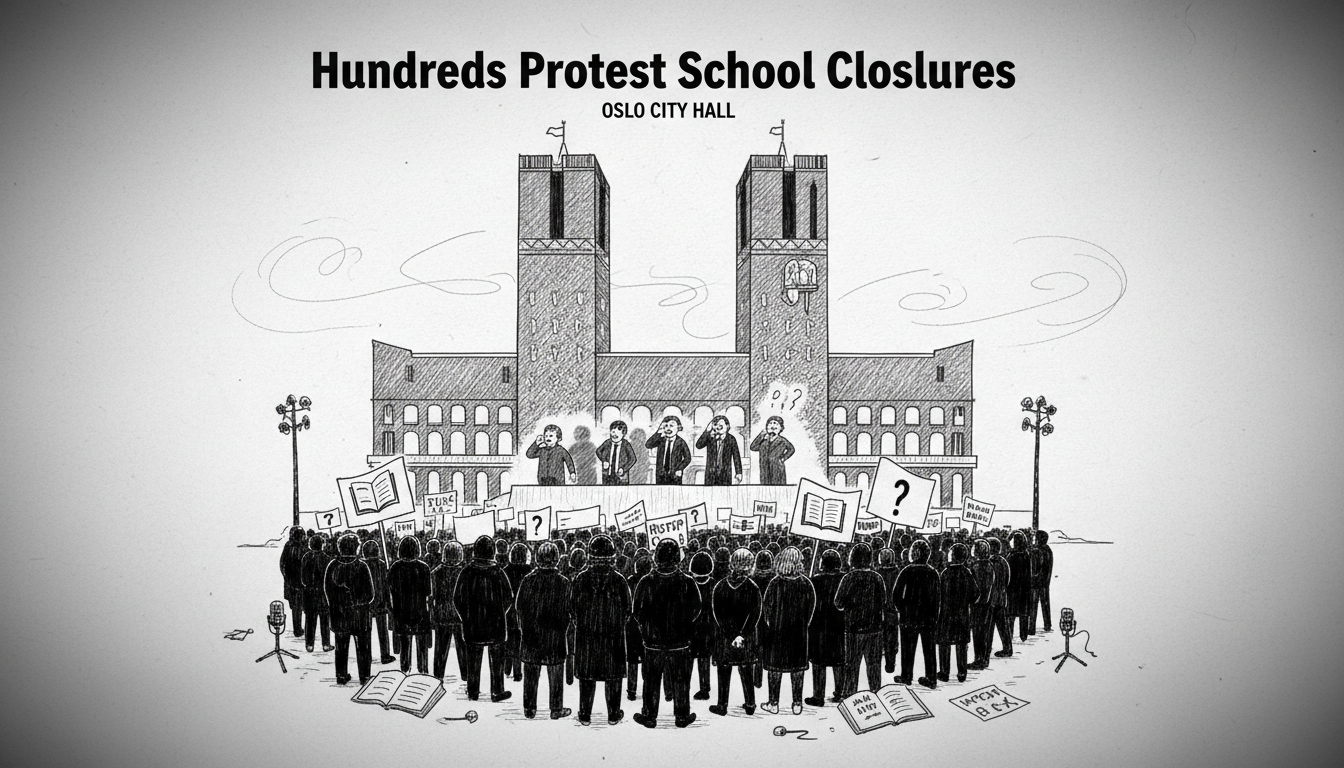Hundreds of students, parents, and teachers gathered outside Oslo City Hall this week to protest controversial school consolidation plans. Two city council members faced loud booing and whistling as they addressed the crowd during the demonstration.
The protest followed a city council meeting where officials discussed proposals to close or merge several schools across the Norwegian capital. The education department claims these changes would save money, but opponents argue they will damage Oslo's education system.
Education Councilor Julie Remen Midtgarden from the Conservative Party was repeatedly booed into silence during her speech. She told demonstrators, 'I want to thank you again for being here and speaking up. This is democracy in practice. Thank you for standing up for your schools and keeping us politicians very alert.'
City Council member Anna Dåsnes from the Green Party also faced heckling during her address to the crowd. The strong public reaction highlights deep divisions over the proposed school reforms.
Opposition politicians in the city council argue the massive public engagement shows the school needs plan must return for another consultation round. When the plan initially went out for public comment earlier this year, it received over 1,300 submissions from concerned citizens and organizations.
Marthe Scharning Lund, leader of the Labour Party group in Oslo, stated, 'For over a year, the plan has faced massive criticism from police, the city's own agencies, parents, staff, and students. That so many people again show up to protest the Conservative council's school needs plan shows how serious the situation is. Parents and students protest because this plan will destroy the Oslo school system as we know it.'
This protest represents the latest chapter in a year-long battle over Oslo's educational future. The city faces budget pressures common to many Nordic municipalities, but residents appear unwilling to accept school closures as the solution. Similar debates have occurred in other Norwegian cities and across Scandinavia, where strong public education systems face financial constraints.
The ongoing conflict reflects broader tensions in Nordic welfare states balancing fiscal responsibility with maintaining high-quality public services. Oslo's school debate mirrors discussions happening in Stockholm, Copenhagen, and Helsinki about how to adapt education systems to changing demographics and economic realities.
What happens next remains uncertain. The city council could proceed with the current plan, modify it based on public feedback, or potentially scrap it entirely. The strong turnout at this week's demonstration suggests parents and educators will continue fighting any measures they believe compromise educational quality.
International observers should note that Nordic education systems typically enjoy strong public support and high international rankings. Changes to these systems often generate substantial public debate, as seen in Oslo this week. The outcome could influence similar discussions across the region about maintaining educational excellence amid budget challenges.

